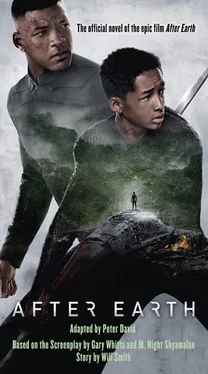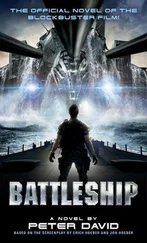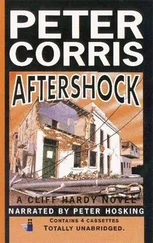“Lemme see,” the man said, extending a beefy hand.
Anderson complied, meeting the hand with his own. The man rolled up the sleeve a bit and examined the detail work, which simulated skin, arm hair, and even fingerprints to match the other hand. He whistled.
“That’s the new K-class arm,” the man said.
Kincaid blinked in mild surprise that the man knew that and flexed the fingers for him, suddenly swelling with pride, since the man clearly wasn’t patronizing him.
“Works great, the best one yet,” Anderson agreed. “You have any problem with prosthetics?”
“Not in the slightest,” the man said. “Bill McGirk. Fill this out, and once you pass the physical, you’re in. And you’ll look better in the uniform than I will.”
McGirk was a man of his word, and within days, Anderson Kincaid was being shown the pulsers used by the NPCDC, which were not regularly carried but cached in case of emergency. Most of the work involved patrolling public spaces, looking for mischief, petty theft, and other troubles the Rangers didn’t have to focus on. They were first responders to medical emergencies, and so he needed a week of paramedic training, which he had an aptitude for despite ignoring his mother’s lessons through the years.
He enjoyed the long shifts and felt a sense of purpose as he walked the streets of Nova Prime City. McGirk was right about one other thing: He looked damn good in uniform, its sheer fabric diffusing heat and wicking away sweat, keeping him comfortable.
Anderson also liked patrolling with Virginia Marquez, a petite woman near his age. She was pretty and sassy and easy to get along with. They would walk the streets together, and bit by bit he was getting to know the neighborhoods in the sectors, picking up the vibes each area gave off. In many ways, it was like he was a newcomer, experiencing the city for the first time. There were the areas where the technicians worked, the smell of the animal herders and farmers with their own ripe odors, the manufacturers who always had recyclables littering the edges of their buildings.
“What’s the strangest call you’ve had?” Kincaid asked her the fourth week they were patrolling together. It was morning, and as the suns climbed the sky, the heat rose and the city woke up. There was a quiet followed by the growing sounds of the people getting ready to work or play. There was always the smell of freshly baked goods, and he learned early on when to be near the bakeries so that bakers would toss them hot rolls—their way of saying good morning.
Marquez, her long hair knotted in an elaborate style with various wooden pieces holding it in place, thought about it for a while. “It might have been the time I was called for a domestic disturbance. Neighbors called just before dawn, claiming there was a horrible fight going on next door and they heard things breaking. I got there with my partner, Cotto, and we knocked once to be polite before we kicked in the door.”
She fell silent, munching on the roll.
“Well?”
“There was no fighting. They were making love. A lot of it, apparently.”
Kincaid nodded and grinned at her. “Learn anything?”
“Nothing you need to worry about,” she teased, and quickened her pace.
“You miss your arm?”
Marquez settled onto the bench next to him, shoving the beer stein in his direction, letting some of the foamy head spill onto the worn table. They had knocked off work a little early and met others at their favorite bar to toast Anderson’s first year in the service.
“I was so young when it happened, I think about it more than actually miss it. At night, sometimes, I think I can still feel it, still flex my real muscles and point with my fingers. I was told the sense of the phantom limb would fade with time, and I guess it has, but I don’t stop thinking about it.”
“But you should be thinking about the path it set you on,” Lars Svensen said. He was a five-year vet with blond hair, blue eyes, and pecs the women swooned over. As a result, he made certain to wear his uniform shirt open beyond what regulations allowed for; not that anyone complained. “You could have been a Ranger.”
“Yeah, you could have been a Ranger and flown over all this planet or trained until you were ready to cry,” Kelly Alpuente added. “I mean, really, what do they do when not fighting Skrel and Ursa? They train to fight Skrel and Ursa.”
“And when was the last time you saw a Skrel ship?” Marquez asked.
“It’s been a while,” Anderson admitted.
“And when was the last significant Ursa attack?”
“Nine fifty-one AE. The Skrel deposited a hundred on the ground; the Rangers took out eighty-eight of them,” he mechanically replied.
“You’re on my trivia team,” Alpuente said with a smile. “I might have gotten the year right but not the rest.”
“It’s that Ranger prep,” Marquez said. “You really wanted to be one of them, didn’t you?”
He merely said yes and drank his beer. He was happy with the corps and had made some valued friends. The last years had been good ones, and he was pleased with the work. They were happy with him. It all should have been good and this should be a joyous celebration, but like his phantom limb, being a Ranger still felt like a phantom career, the reality versus this substitute.
Kincaid threw himself into the conversation, drank one beer too many, and let Alpuente take him home for the night, unaware of the longing look Marquez shot him.
Flames had blackened the side of the honeycombed complex. Non-smart fabric materials were catching fire and adding to the heat and light. People were still being evacuated when Anderson finally showed up to assist. The call for reinforcements had gone out only ten minutes prior, so he thought he had made good time, but he recognized that every minute meant more property lost, more life endangered.
McGirk had arrived to take point, sweating in the heat, soaking his uniform beyond the fabric’s ability to keep him cool. He looked haggard as firefighters behind him were spraying foam directly on the flames.
Kincaid and Marquez had been pulled off their regular assignment to lend assistance to the firefighters. They first were handling crowd control, and thankfully, everyone followed orders without trouble. Then McGirk came toward them, pointing at Kincaid.
“Kincaid, the firefighters are shorthanded. You’re strong; I need you in there searching for stragglers,” McGirk said, shoving his right thumb in the direction of the burning building.
“I’m a little underdressed for that,” Kincaid began when a fireman shoved a rubbery yellow suit at him. Without hesitation or additional comment, Marquez helped him step into the one-piece outfit, which quickly fastened around him. He was handed a pair of orange fluorescent gloves that fit over the sleeves and then were molded around his wrists, adhering to the bodysuit. Finally, a cowl was applied, fastened, and finished with goggles and breathing apparatus. The oxygen had a metallic tang to it. He felt a little silly, but it was regulation and he was now insulated for brief periods so that he could enter the structure and see if people were trapped.
Marquez patted the side of his face, which Anderson found oddly affectionate until he realized the woman was merely activating the communicator built into the breathing mask.
“You hear me? Am I coming across clear?”
“Crystal.”
McGirk gave him a thumbs-up, adding, “Go find ’em, kid.”
Kincaid walked toward the building, seeking a safe entry point, and wound up climbing through the remains of a burned-out window. He half stumbled his way through, regained his footing, and paused to study his surroundings. The fire had pretty much charred the furniture and belongings so that there were dark heaps of what once had been useful materials. He saw no loss of life and walked into the next room. There was enough noise from the flames, the foam, and general shouting of orders that he decided against adding to the noise by calling out. Instead, he methodically worked his way from room to room, apartment to apartment, and floor to floor. It promised to be a long, tedious process.
Читать дальше












